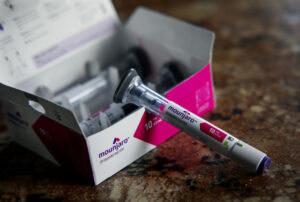Compounding pharmacies are suing the Food and Drug Administration so they can keep making imitation versions of popular—and lucrative—tirzepatide drugs, namely knockoffs of Mounjaro for diabetes and Zepbound for weight loss.
Generally, compounding pharmacies make customized formulations of drugs for patients with specific needs, like when a patient has an allergy to a filler ingredient or if a child needs a liquid version of a drug that normally comes as a capsule. But larger compounding operations are also legally allowed to make imitations of branded drugs if those drugs are in short supply, acting as a stopgap for patients.
Tirzepatide has certainly been in short supply in recent years. Given the high prevalence of diabetes and obesity in America and the drug's effectiveness, demand for tirzepatide and other drugs in the new GLP-1 class have skyrocketed, and many patients have struggled to fill prescriptions. The FDA placed tirzepatide on its drug shortage list in December of 2022—and that's where it remained until last week.
On October 2, the FDA announced that the tirzepatide shortage had been resolved and that the nation's supply of GLP-1 drugs was stabilizing, though other drugs in the class, including semaglutide, remain in short supply.
"FDA confirmed with the drug’s manufacturer [Eli Lilly] that their stated product availability and manufacturing capacity can meet the present and projected national demand," the agency said in its announcement. However, it cautioned that patients and prescribers "may still see intermittent localized supply disruptions" as the drugs move through the supply chain.
End of an era
With the resolution, compounding pharmacies are no longer able to produce tirzepatide. And the FDA highlighted the point to the drug makers, writing in bold that the agency "reminds compounders of the legal restrictions on making copies of FDA-approved drugs."



 Loading comments...
Loading comments...
